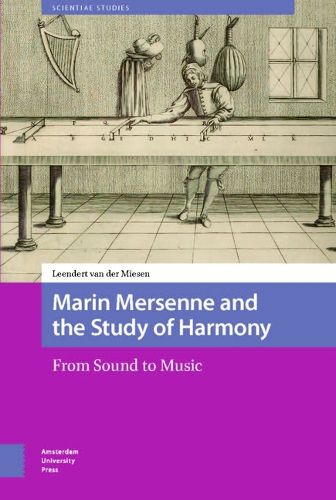Readings Newsletter
Become a Readings Member to make your shopping experience even easier.
Sign in or sign up for free!
You’re not far away from qualifying for FREE standard shipping within Australia
You’ve qualified for FREE standard shipping within Australia
The cart is loading…






Marin Mersenne and the Study of Harmony delves into the central role of music among the early modern sciences by focusing on the work of the French polymath Marin Mersenne (1588-1648). Although now regarded more as an art than a science, music was for many early modern scholars a universal science for studying the harmonies present in all beings. For Mersenne, music's ability to be quantified while being experienced aesthetically meant that it was the central science to approximate the sounding and inaudible harmonies present in the world and universe at large. Bringing together Mersenne's interests in the physics of sound and hearing, musical composition, instruments, curiosities, and music from outside Europe, this book shows why so many scholars were drawn to music and how music was at the center of the early modern debate on the foundations of knowledge.
$9.00 standard shipping within Australia
FREE standard shipping within Australia for orders over $100.00
Express & International shipping calculated at checkout
Marin Mersenne and the Study of Harmony delves into the central role of music among the early modern sciences by focusing on the work of the French polymath Marin Mersenne (1588-1648). Although now regarded more as an art than a science, music was for many early modern scholars a universal science for studying the harmonies present in all beings. For Mersenne, music's ability to be quantified while being experienced aesthetically meant that it was the central science to approximate the sounding and inaudible harmonies present in the world and universe at large. Bringing together Mersenne's interests in the physics of sound and hearing, musical composition, instruments, curiosities, and music from outside Europe, this book shows why so many scholars were drawn to music and how music was at the center of the early modern debate on the foundations of knowledge.